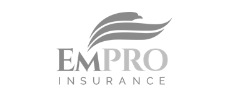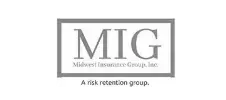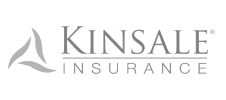RAC Audit Insurance Coverage
 The RAC Audit process poses significant challenges and potential financial risks for healthcare and senior living facilities. This is where RAC Audit coverage is a crucial safeguard.
The RAC Audit process poses significant challenges and potential financial risks for healthcare and senior living facilities. This is where RAC Audit coverage is a crucial safeguard.RAC coverage is the protection that every institution, cognizant of the potential pitfalls of RAC audits, should seriously consider.
When considering RAC coverage, facilities should work closely with their insurance broker to ensure that the coverage aligns with their potential exposure.
Given the specialized nature of this coverage, it’s also crucial to read the fine print, understand any exclusions or limitations, and be aware of the policy’s limits.
Introducing RAC coverage
In a landscape where even minor errors can lead to substantial penalties, RAC coverage is essential to ensure that facilities can continue their primary mission of care, without having to worry about regulatory oversight.
-
Legal Fees: RAC Audit Insurance coverage typically covers the cost of ;legal consultation and defense. It’s important to have a good legal counsel because of the complexities of RAC audits.
-
Fines and Penalties: If a RAC audit determines that there were overpayments or other discrepancies, the resulting fines or required reimbursements can be substantial. Many RAC Insurance policies can cover these costs, up to the policy’s limit.
-
Additional Costs: When you’re being audited there can be unexpected costs, such as hiring outside consultants, auditors, or specialized staff to address the audit’s demands. Some policies may cover these auxiliary costs.
-
Appeal Costs: If a facility appeals an RAC decision, there will be additional fees and costs associated with this process. Coverage for appeal costs can be included in some RAC Audit Insurance policies.
-
Extended Reporting Period: Some policies might offer an extended reporting period, providing coverage for claims made after the policy expires but which stem from incidents that occurred during the policy period.
-
Retroactive Date Coverage: This can protect the insured from incidents that occurred before the policy’s effective date but were only discovered after the policy was in effect.
What are RAC audits?
The healthcare landscape is laden with regulations and potential pitfalls, where even minor errors can result in significant financial penalties.
RAC (Recovery Audit Contractor) audits began as a mechanism designed to ensure Medicare compliance. However, have increasingly become a focal point of concern, for both healthcare and senior living facilities. Due to the range of services they offer, both industries find themselves under the microscope of regulatory scrutiny and non-compliance penalties.
Enter RAC Audit Coverage—a shield against the financial implications of audit discrepancies, and a testament to an organization’s commitment to proactive risk management. As the wave of regulatory oversight intensifies, understanding and embracing RAC Audit Insurance becomes essential for both healthcare and senior living industries.
RAC Audit Case Studies
A Texas Senior Living Facility Overpayment Dilemma
A renowned senior living facility in Texas with a reputation for excellent care found itself under the lens of an RAC audit. The primary concern highlighted by the audit was inconsistencies in Medicare billing over a two-year period.
Detailed Findings:
- Several instances where the facility billed Medicare for higher-level care services, but documentation supported lower-level care.
- Some residents were billed for specialized therapiesthey didn’t receive due to clerical errors.
- Certain Medicare claims lacked the necessary supporting documentation, raising red flags for the auditors.
Consequences:
- The combined discrepancies resulted in an overpayment determination of $1.2 million. This significant amount posed a financial strain on the facility, threatening its operational viability.
- The facility had to divert considerable resources to address the findings, including hiring external consultants and attorneys to navigate the appeal process.
Outcome:
While the facility managed to contest some of the findings successfully, reducing the penalty, the ordeal underscored the need for stringent internal audits and training sessions for the billing staff to prevent future inconsistencies.
A Vicious Audit Cycle imposed on an Assisted Living Facility
A popular assisted living facility in Florida, with a history of impeccable compliance, faced a RAC audit that uncovered minor non-compliance issues.
Detailed Findings:
- Some claims only lacked the requisite physician signatures, making them non-compliant.
- A few instances were found where medication dispensation records did not match the billed amounts, though the discrepancies were minor.
- There were lapses in updating residents’ individual care plans in line with their evolving needs.
Consequences:
- While the initial findings resulted in a relatively minor financial penalty, the bigger concern was the flagged increased scrutiny. The facility was placed on a ‘watchlist‘, leading to repeated audits over the next two years.
- The continuous oversight meant additional administrative work, documentation cross-checks, and regular interactions with auditors. This diverted attention and resources from primary care activities, >leading to operational disruptions.
Outcome:
The repeated audits, though stemming from minor discrepancies, placed significant strain on the facility’s resources. It led to the implementation of a rigorous internal compliance system and periodic staff training to ensure such oversights were avoided in the future.





















Extrapolated results can result in huge penalties
RACs have the authority to extrapolate results, making even small error rates potentially catastrophic for providers, when applied across all their Medicare days. It’s a method that CMS uses to estimate overpayments or underpayments over a universe of claims based on a smaller sample of claims.
There have been instances in the past where facilities faced penalties extrapolated from smaller sample sizes, leading to substantial fines. According to McNights Long Term Care News: “RACs are incentivized to find errors, and can extrapolate their results. That means that they can take your error rate and apply it to all your Medicare days. A penalty of $75,000 for one provider became a fine of $750,000 from CMS.”
What is the timeframe for facilities to repay penalties ?
Facilities usually have to repay RAC penalties or overpayments within 45 days, according to guidelines set by the Centers for Medicare Medicaid Services (CMS). Specifically:
- Recoupment Process: Once a RAC identifies improper payments or an overpayment, the Medicare Administrative Contractor (MAC) initiates the recoupment process. They begin taking back the overpaid amount.
- Timeframe for Repayment: The facility usually has 45 days from the date of notice of overpayment, to repay the money before interest starts accruing.
- Appeal Rights: Facilities have the they have the right to a five-level appeal process. If a facility decides to appeal the RAC’s determination and files the appeal within 30 days, the recoupment process is typically halted until the outcome of the first level of appeal.
- Extended Payment Schedule: In cases where the repayment of the overpayment would constitute a hardship, a facility may request an extension to their repayment schedule. The specific terms and eligibility criteria for this option can vary.
It’s crucial for facilities to be aware of the specific timelines, interest accrual rates, and their rights regarding recoupments.
Facilities should check with CMS or regulatory authorities for the latest guidelines on RAC audit overpayment recoupments. This is important because regulations are constantly changing. It is crucial to stay informed to ensure compliance with current rules.
Benefits of RAC Audits Coverage
RAC Audit Insurance policies primarily focus on covering the financial ramifications of RAC audit findings. However, some insurance providers, especially those offering more comprehensive policies or those specializing in healthcare-related insurance, may offer additional services such as assistance in the appeal process.
Specifically:
- Legal Assistance: Many RAC coverage policies will give you access to legal counsel experienced in RAC audits and the appeals process. These legal experts can help negotiate with the RAC regarding their findings, assisting in clarifying or refuting claims of errors or omissions.
- Claims Support: Some insurance providers might have claims support teams that assist policyholders throughout the RAC audit process, guiding them through best practices, and offering resources or expert consultations that can help challenge the RAC’s determinations.
- Third-Party Consultation: Some policies might cover the cost of hiring third-party consultants or experts who can provide a second opinion or expert analysis to counter the RAC’s claims.
While the primary purpose of RAC Audit Coverage is to provide financial protection against the outcomes of RAC audits, these additional services can be invaluable in minimizing the impact of an audit, especially if errors or omissions are contested.
However, it’s crucial to note that the extent of involvement by the insurance carrier in direct negotiations with the RAC can vary depending on the policy and the provider. Westwood insurance will request facilities clarify these details when assisting you with a policy.
A valuable safety net
In an era where regulatory oversight is intensifying and Audit teams continue to challenge even the most diligent institutions, RAC audit coverage stands out as a beacon of prudence. For healthcare and senior living facilities, navigating the complexities of services and ensuring impeccable compliance is no small feat. And while striving for perfection is commendable, preparing for the unforeseeable is wise.
RAC audit Insurance embodies this wisdom, offering facilities a safety net against unforeseen discrepancies and the potentially overwhelming financial implications of audit findings. As both these industries remain dedicated to their noble mission of care and service, ensuring their operational and financial stability is paramount.
Investing in RAC audit coverage is not just a protection against potential pitfalls; it’s a testament to foresight, responsibility, and an unwavering commitment to excellence in care.
![]() My Insurance agency has done business with Westwood for over 10 years and always found them to be professional...
My Insurance agency has done business with Westwood for over 10 years and always found them to be professional...

Shira Abrams
02 May, 2023
![]() I’ve worked with Michael Richards and his team now for many years and I can unequivocally say that they are by far the...
I’ve worked with Michael Richards and his team now for many years and I can unequivocally say that they are by far the...

Joe Roth
11 June, 2023
![]() Westwood Insurance Group, with Dale and Liz are a pleasure to work with in helping solve for my insured’s insurance needs...
Westwood Insurance Group, with Dale and Liz are a pleasure to work with in helping solve for my insured’s insurance needs...

Greg Cullom
08 Nov, 2023
![]() Laura has been a great contact for us over at the Westwood Insurance Group. She is extremely communicative...
Laura has been a great contact for us over at the Westwood Insurance Group. She is extremely communicative...

Hayley Shryock
30 June, 2023
![]()

Kathy Natale
25 Sept, 2024
RAC Audit Coverage FAQ's
What is RAC Audit Coverage?
RAC Audit Coverage is a specialized coverage designed to protect healthcare facilities from the financial repercussions arising out of Recovery Audit Contractor (RAC) audits, specifically discrepancies related to Medicare claims.
Why is RAC Audit Coverage crucial for the healthcare industry?
Both industries deal with Medicare claims, which are subject to RAC audits. Given the potential for hefty penalties, even from minor discrepancies, having insurance ensures financial stability and operational continuity.
What does RAC Audit Coverage typically cover?
Coverage often includes legal fees, fines, penalties and additional audit-related costs during the audit process.
Does RAC Audit Coverage only benefit large organizations?
No. While large organizations might face more substantial absolute penalties, smaller facilities can experience proportionally significant financial strain from RAC audit findings. Thus, organizations of all sizes can benefit.
How does RAC Audit Coverage compare to malpractice insurance?
While both insurances offer protection against different risks, the financial and reputational repercussions of RAC audits can be as impactful as those from malpractice claims. Both insurances are pivotal in a comprehensive risk management strategy.
Can RAC Audit Coverage assist in the appeal process of audit findings?
Many RAC Audit Coverage policies provide access to legal counsel experienced in RAC audits, which can be invaluable during the appeal process.
Are RAC audits that common to warrant such insurance?
Given the contingency fee basis on which RACs operate, there’s an inherent incentive for thorough claim scrutiny. With the increasing frequency of audits, and the financial implications of findings, RAC Audit Coverage offers a critical safety net.
Speak with an Insurance Professional
Dale Nelson
Dale specializes in sourcing the most suitable RAC Audit Coverage at the best price. You can call him or fill out the form and he will get your message directly.









